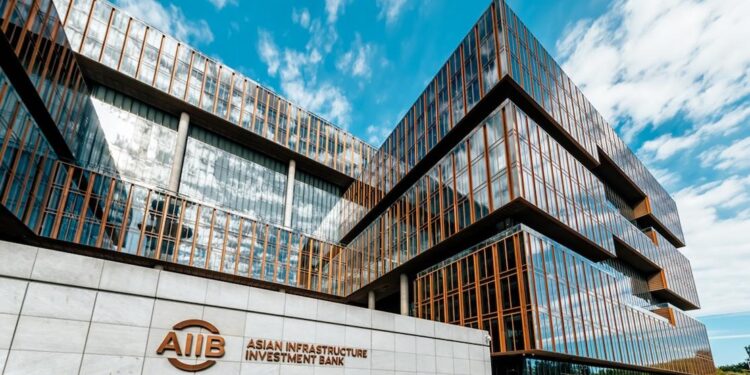In a significant move ahead of its 2025 Annual Meeting, the Asian Infrastructure Investment Bank (AIIB) has sent a high-level delegation to Kunming, China, to assess the region’s development initiatives and infrastructure projects. This visit, which underscores the AIIB’s commitment to fostering sustainable infrastructure growth in Asia, highlights the bank’s proactive approach to engaging with member countries and local stakeholders. As the AIIB prepares to convene in Kunming, the delegation aims to gather insights and foster collaborations that can further enhance the bank’s mission of promoting economic prosperity across the continent. This visit not only sets the stage for the upcoming annual meeting but also reinforces the bank’s strategic priorities in addressing the region’s evolving infrastructure needs.
AIIB Board Explores Kunming’s Development Ahead of Strategic Annual Meeting
The Board of the Asian Infrastructure Investment Bank (AIIB) recently embarked on a visit to Kunming, China, to explore the city’s rapid development and its potential as a host for the upcoming 2025 Annual Meeting. This strategic evaluation emphasized Kunming’s transformative infrastructure projects, which have been pivotal in enhancing connectivity across the region. During their visit, the Board engaged with local government officials and stakeholders to assess ongoing initiatives that align with AIIB’s mission of fostering sustainable economic growth through investment in infrastructure.
Key areas of focus during the visit included:
- Transport Infrastructure: Review of major transportation upgrades that facilitate regional trade.
- Green Initiatives: Insight into eco-friendly projects aimed at reducing the carbon footprint.
- Urban Development: Strategies for sustainable urbanization that prioritize livability and inclusivity.
The visit concluded with a constructive dialogue on how AIIB can collaborate with Kunming to fortify its infrastructure framework, ensuring readiness for the global gathering in 2025. A preliminary discussion led to the identification of potential investment opportunities and partnerships that could further catalyze the city’s growth trajectory.
Insights on Infrastructure Growth Opportunities from AIIB’s Kunming Visit
The recent visit by the AIIB Board to Kunming highlighted significant growth opportunities in regional infrastructure development, particularly in areas that complement China’s Belt and Road Initiative (BRI). This strategic engagement aims to bolster investments in key sectors such as transportation, energy, and urban development. The Board underscored the importance of fostering cooperative frameworks among member countries to mobilize resources and expertise for sustainable projects. Stakeholders discussed the following priority areas:
- Green Infrastructure: Emphasizing sustainable design and renewable energy sources to combat climate change.
- Digital Connectivity: Enhancing broadband access to promote digital economies across member states.
- Urban Resilience: Building infrastructure that can withstand natural disasters and adapt to urbanization pressures.
Furthermore, the Board highlighted the potential for public-private partnerships (PPPs) to drive infrastructure growth, showcasing examples from successful projects in the region. A proposed roadmap was presented, aimed at aligning investment priorities with the strategic vision for a more connected and resilient Asia. The following table showcases essential funding focuses for upcoming projects:
| Project Type | Investment Focus | Expected Impact |
|---|---|---|
| Transportation | High-speed rail networks | Increased trade efficiency |
| Energy | Renewable energy solutions | Reduced carbon footprint |
| Urban Development | Sustainable housing projects | Improved living conditions |
Recommendations for Enhancing Regional Collaboration and Investment Initiatives
In order to foster greater collaboration and attract investment in infrastructure development across the region, stakeholders must prioritize a multi-faceted approach that emphasizes transparency and mutual benefit. Establishing a Regional Cooperation Framework could facilitate enhanced dialogue between nations, allowing them to outline shared goals and allocate resources effectively. Moreover, developing joint venture initiatives would encourage private sector participation while distributing risk and maximizing financial leverage.
Furthermore, it is essential to integrate capacity-building programs that not only educate local experts and policymakers about best practices in infrastructure development but also promote sustainable investment strategies. To support these efforts, the creation of an Investment Facilitation Task Force composed of representatives from member countries could streamline project approvals, minimize bureaucratic hurdles, and enhance overall efficiency in fund deployment. The following table summarizes key focus areas for enhancing regional collaboration:
| Focus Area | Goal | Expected Outcome |
|---|---|---|
| Joint Ventures | Attract Private Investment | Reduced Financial Risk |
| Capacity Building | Educate Local Stakeholders | Improved Project Execution |
| Task Force Creation | Streamline Approvals | Faster Project Implementation |
Future Outlook
In conclusion, the recent visit of the Asian Infrastructure Investment Bank (AIIB) Board to Kunming underscores the significance of the city as a pivotal hub for infrastructure development in Asia. As preparations ramp up for the 2025 Annual Meeting, the discussions held during this visit highlight the AIIB’s commitment to fostering sustainable growth and enhancing regional cooperation. With emphasis on innovative financing solutions and collaboration with local stakeholders, the AIIB is poised to play a crucial role in addressing the infrastructure needs of the region. As the countdown to the annual meeting begins, all eyes will be on Kunming as it prepares to showcase its potential and the transformative projects that lie ahead. The choices made during this pivotal time will not only shape the future of infrastructure financing in Asia but also set the stage for global collaboration in the coming years.














